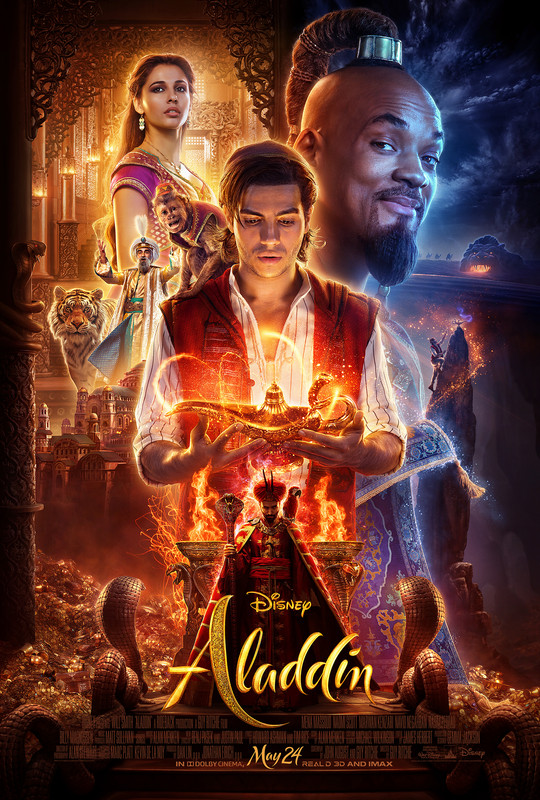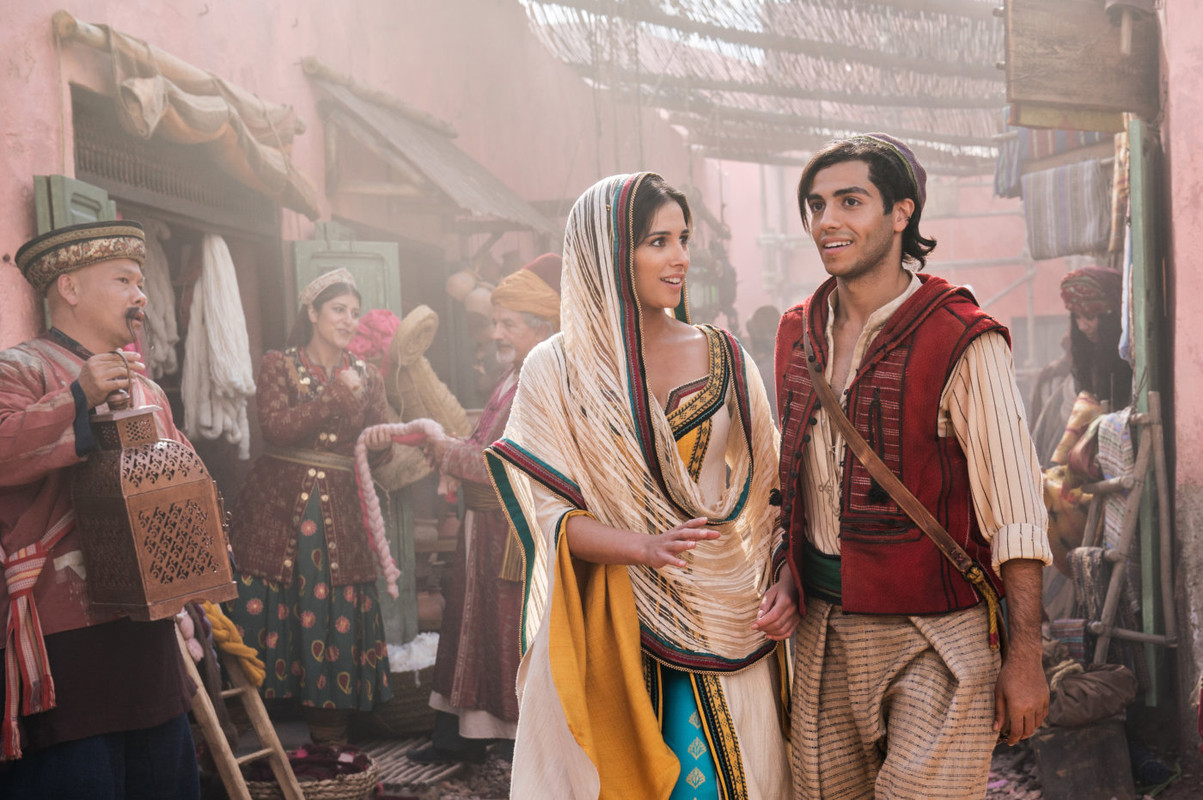Dir: Guy Ritchie
After the live action reboot of Beauty and the Beast made, at last count, all the money, this was only a matter of time. Aladdin was one of the great films that Disney made in the renaissance kicked off by The Little Mermaid in 1989, and was incredibly influential thanks to the casting of Robin Williams, whose spectacular voice work as the Genie was undoubtedly a major catalyst for more recognisable actors from outside animation being cast in the main voice roles in subsequent films. This live action version has a lot to compete against.
Sight unseen, there are promising indications. You could never replace Robin Williams, but Will Smith, though his comic energy is very different, is one of the few people it is possible to imagine finding a new spin on this part. Rather than cast the latest hot young things, director Guy Ritchie has found largely new and culturally appropriate actors for the main roles, though the positives as far as representation goes have been undermined by stories of extras being given brownface makeup on set. Still, there does seem to be at least an attempt to find a fresh angle. And then you see the film.
It’s fair to say that the lyrics to the opening song of the animated film, Arabian Nights, were always rather problematic, so it’s fine that the version here is rewritten, but it is a very bad first indication of what this film is going to be. Rather than the peddler/narrator, the song is now delivered by a ‘mariner’ played by Will Smith. Smith, as will be repeatedly demonstrated, can not sing. Rather than drawing us in to the live action world of Agrabah, the bored, obviously autotuned, yet somehow still terrible delivery of the song keeps us at arm’s length.
This is an abiding problem with Will Smith’s performance. As the Genie, Robin Williams was an endless explosion of comic energy and invention, this was always likely to be a more laid back version, but Smith never seems comfortable in the role and doesn’t find a groove. The better moments take ideas from the original performance but allow Smith to put his own spin on them. The sequence of trying various looks for Aladdin’s Prince wish is a good example, finding a middle way between Smith's persona and the original material. Conversely, expanding Genie’s story by giving him a love interest (Nasim Pedrad) and the moments in which he directly emulates Williams simply don’t work. Tedious as Genie’s romantic storyline is, Smith’s casting - intentionally or otherwise - throws up one potentially interesting and provocative subtext: Genie is essentially a slave and Aladdin, his master, has the sole power to free him. Casting an African American actor in this role makes Genie’s chains something more than a supernatural plot facilitator, it's not a surprise that a Disney film is either unable or unwilling to find a way to engage with this idea, but it goes slightly uncomfortably by the wayside; always there but never addressed.
The awkwardness of the whole enterprise isn’t just evident in front of the camera. Guy Ritchie seems to have had similar problems. Ritchie always felt like an odd fit for this job, with no experience either in films geared towards this young an audience or with musical numbers. It shows. Again, there’s a roadmap to follow and he looks for a middle way between using the animated film as a storyboard and bringing his own ideas. What goes missing, in both sides of the equation, is the fizz of the original. Like the character of Genie (and probably largely because of him) Aladdin had real energy in its animated form. Here, everything seems slower. At over half an hour longer Ritchie's Aladdin feels bloated. More pressingly though, sequences like the escape from the lava in the cave of wonders and the opening chase with the guards seem to have been made a few percent slower. I suppose this allows the film to feel slightly less cartoony, but for a small difference it’s very perceptible. The Prince Ali scene brings the film’s every flaw together from Ritchie’s staggeringly boring and flat staging, which makes the gigantic spectacle of the original number feel tiny, to Smith’s listless and tuneless delivery of one of the score’s best songs.
Happily, this Aladdin does have a few things going for it, chiefly British actress Naomi Scott, whose modernised Jasmine is much more active and assertive than the animated character and who gives easily the best performance, both as an actor and as a singer, in the film. Of all the added elements, the shift in the dynamics of why she can’t marry a commoner and her excellent song new Speechless are by far the most interesting. Marwan Kenzari has presence and is a far handsomer Jafar than you’d expect based on the animated character’s model, but what he lacks is menace. To be fair to Kenzari, who does what he can with the part and has a certain slippery charisma, this is largely the fault of the script by Ritchie and John August, which strips Jafar of the most gleeful aspects of his villainy, as well as dropping his Prince Ali reprise and reducing Iago to a squawking prop. Mena Massoud is perhaps the actor who sticks closest to his animated counterpart’s personality. He captures Aladdin’s charm and cheekiness, hits the jokes well (even if a bit about jam is ludicrously overextended) and delivers the songs solidly enough.
At its best, Aladdin is just about good enough. There are a handful of moments that translate the magic of the original film - A Whole New World still works - and a few new ideas do click, but these are few and far between. As a whole, it needed the courage to be more radical. Like the Genie, the film is shackled, only, in this case, its master is nostalgia. Rewrite the songs so Will Smith could deliver them entirely as rap, rather than making him sing when he can’t (or try to be Robin Williams when he can’t). Have a director who knows musicals and let them cut loose with the camera rather than shoot the numbers as if they are being awkwardly performed on a cheap stage set. There are a few simple pleasures here, but with just a little daring there was a much better and more individual film to be made.
★★



No comments:
Post a Comment